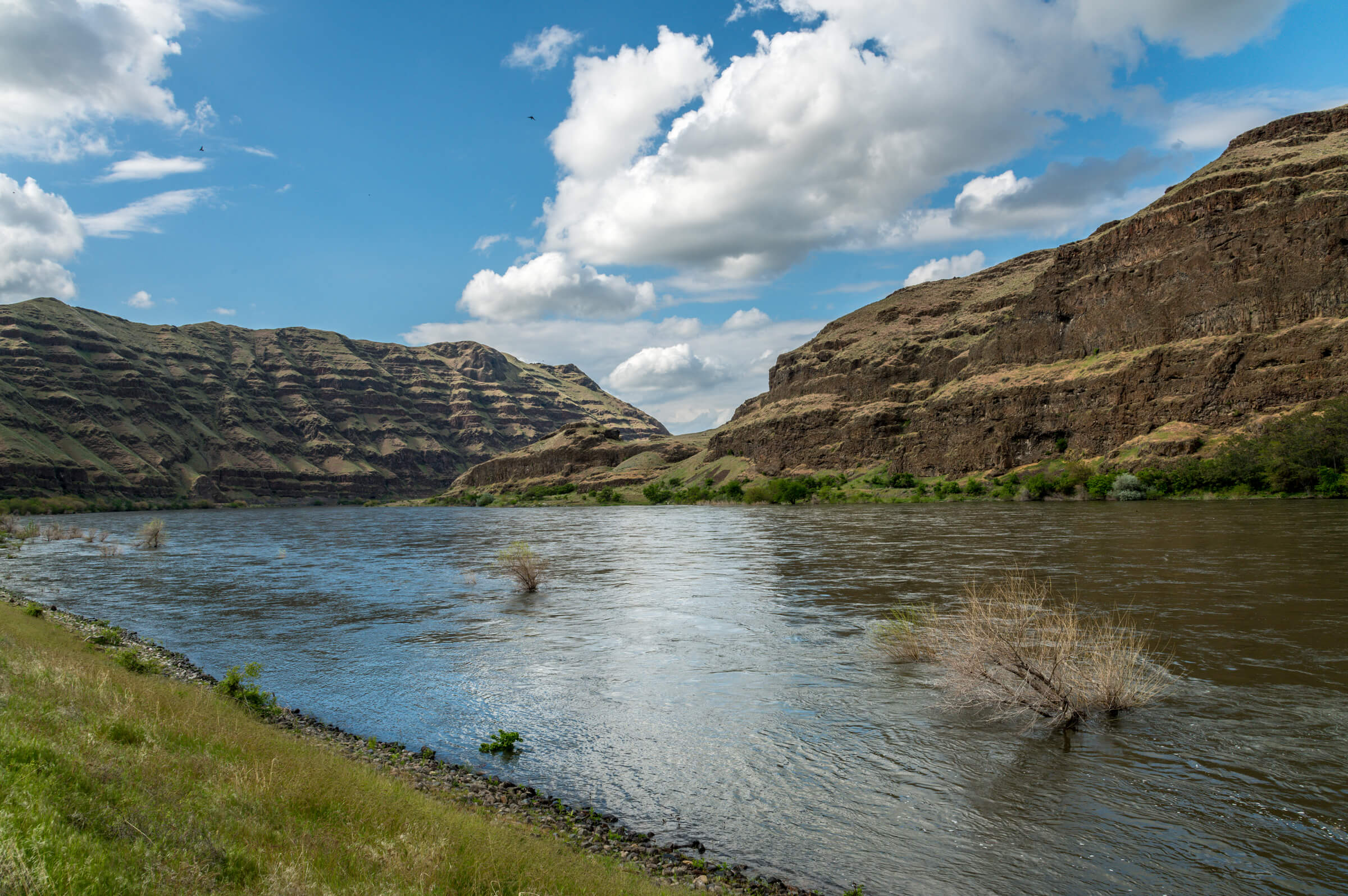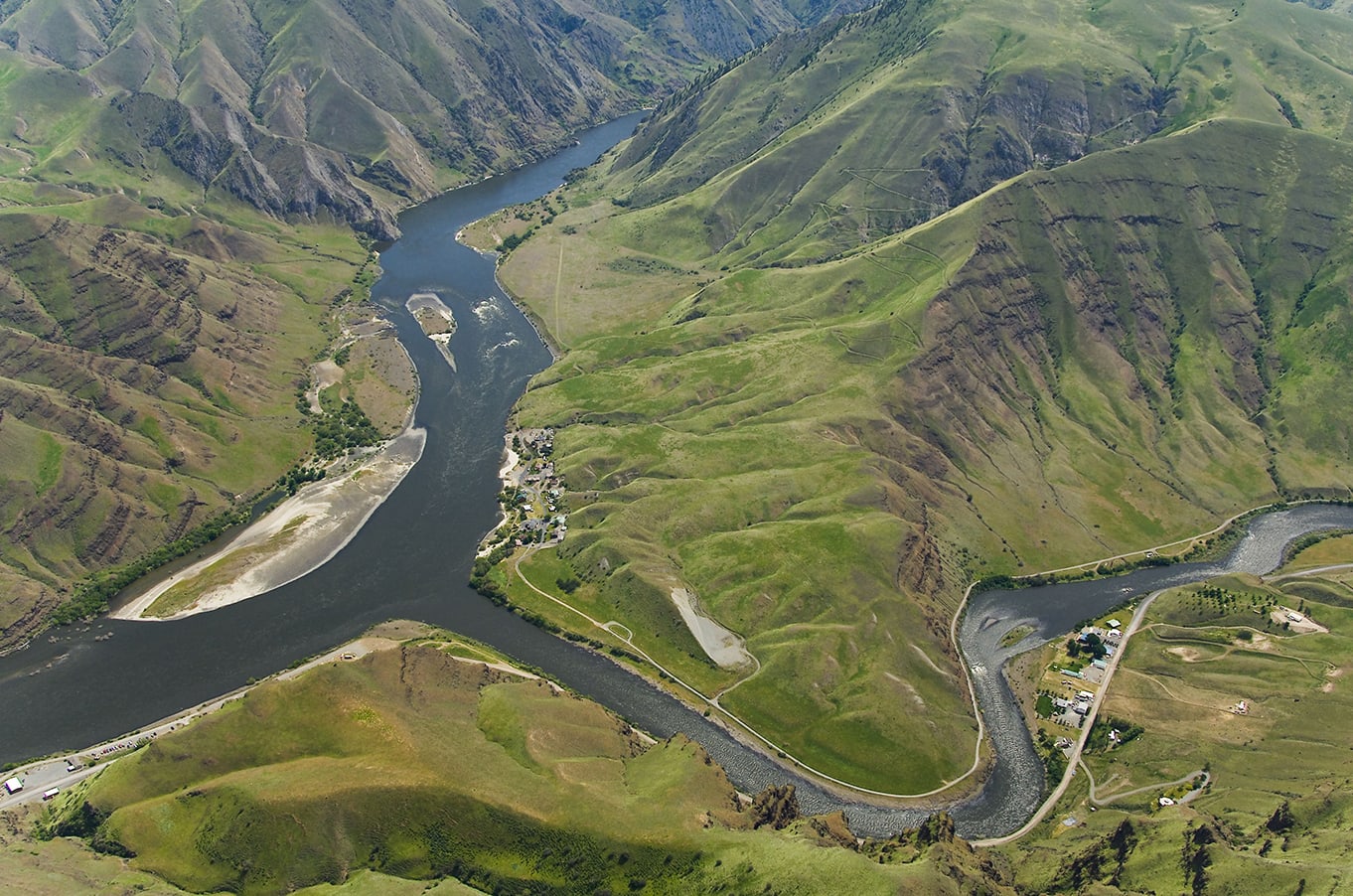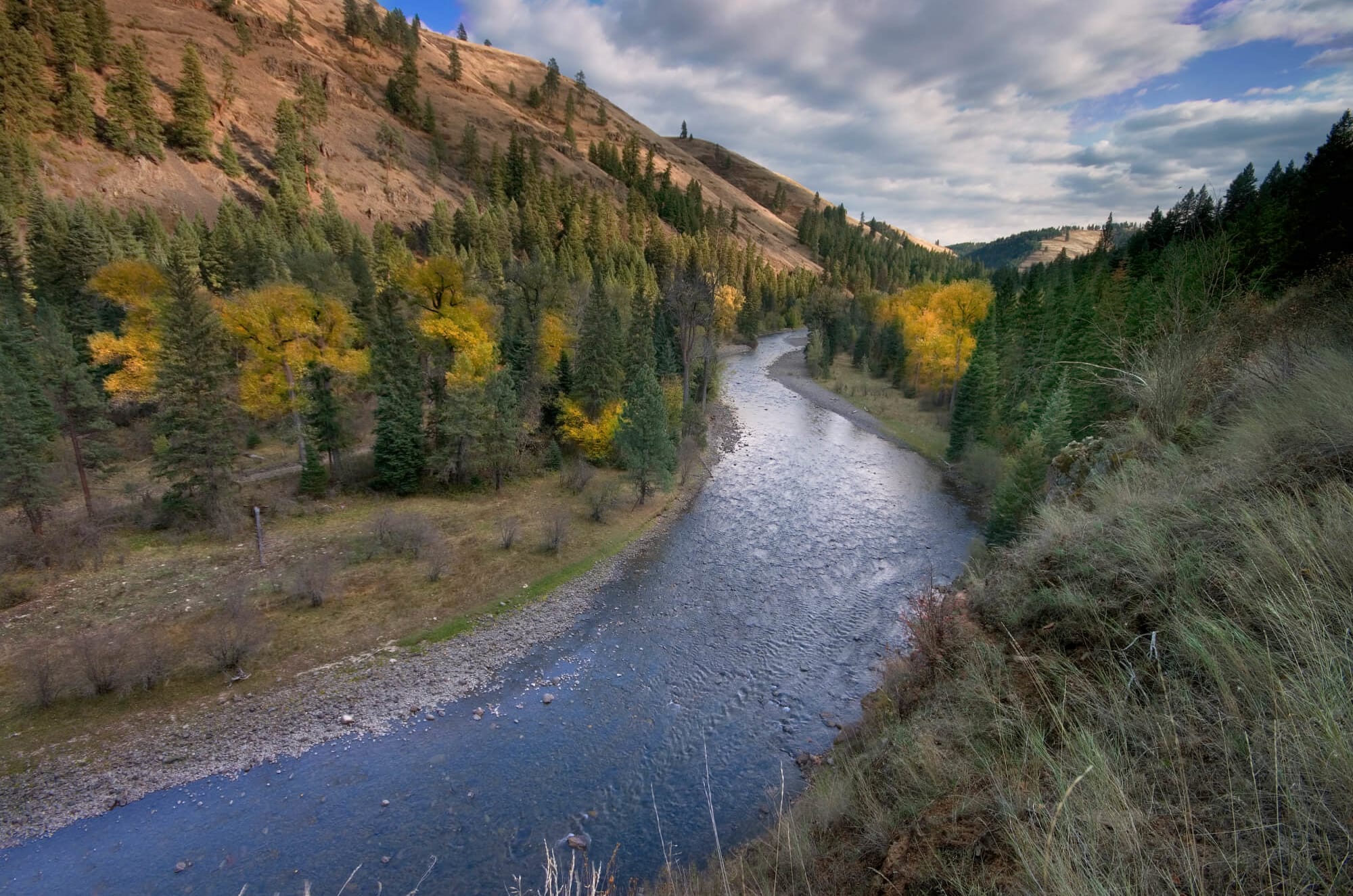A gamechanger for hells canyon bighorn sheep
Western Rivers Conservancy had the rare opportunity to conserve four miles of the Snake River and to protect some of the most important bighorn sheep habitat in the Pacific Northwest. In August 2020, we conserved the 2,920-acre Ten Mile Creek Ranch, which lies approximately 10 miles south of Lewiston, Idaho, between Hells Gate State Park to the north and the 78,000-acre Craig Mountain Wildlife Management Area to the south.
Our successful conservation of Ten Mile Creek Ranch prevented subdivision and development of the property and the loss of key lambing habitat for Idaho’s Hells Canyon herd of bighorn sheep. The Hells Canyon herd numbers roughly 150 head, and upwards of 50 to 80 percent of the ewes give birth and rear their lambs on the property. The ranch’s steep, rocky cliffs, sheltered finger canyons, small caves and rocky hollows provide crucial protection for the vulnerable lambs as they are nurtured toward maturity. Remarkably, Ten Mile Creek Ranch is one of only two private properties in the state used for lambing by the Idaho-Hells Canyon herd.
Ensuring fish and wildlife habitat remains intact
Ten Mile Creek Ranch lies roughly 35 miles downstream from Hells Canyon, the deepest river gorge in North America and one of the most spectacular river reaches in the West. The Snake is the lifeblood of the canyon, tumbling out of the high Rockies of Wyoming and Idaho and fed by some of the West’s most outstanding rivers on its way to the Columbia. The area’s fish, wildlife and botanical values are as important as its scenic, recreation and cultural attributes, and all are dependent on the health of the Snake River.
Despite massive dams that hobble the lower Snake, this stretch of the river remains critical for big game mammals, anadromous fish and resident and migratory birds. These include black bear, Rocky Mountain elk, mule deer, mountain lion, spring and fall Chinook, summer steelhead, white sturgeon and well over 100 species of birds. At least 133 bird species have been recorded at the upstream Craig Mountain WMA, including blue and ruffed grouse, gray partridge, chukar, mountain quail, golden and bald eagle, western tanager, varied thrush and pileated woodpecker. Conserving Ten Mile Creek Ranch will preserve vital habitat for all of these animals, including multiple stretches of prime spawning gravel for Chinook salmon, which dig their redds and lay eggs just off the property’s banks each year.
After purchasing the ranch in 2018, WRC worked with the Idaho Department of Fish and Game to place a conservation easement on the property, preventing a large subdivision and ensuring the ranch’s fish and wildlife habitat remains intact. We then sold the protected land and its two houses (a lodge and a caretaker’s home) to a private buyer who shares WRC and IDFG’s conservation vision for the property.











